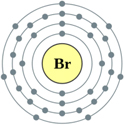Bromine vs. Chlorine for Spas & Hot Tubs
For the hot tub or spa owner, a thought might enter their head: "Hey, why not use pool chemicals for the hot tub? They're a lot cheaper!"
So, why not just use 3" chlorine tablets and powdered pool shock to sanitize your spa? Isn't it the same thing?
Bromine vs. chlorine - two challengers will fight for the title of best spa and hot tub sanitizer.
ROUND ONE: COST
Trichlor chlorine tablets, the 1" size, are about 20% cheaper than bromine tablets. The 3" tablets are over 40% cheaper when you buy in bulk. Chlorine does have a shelf life, however, and after about a year, depending on the temperature it is stored at, the chlorine can lose half of its power. Cal-hypo or dichlor shock, two types of pool shocks, are also cheaper than non-chlorine shock.
Round one goes to chlorine - definitely a cheaper alternative!
ROUND TWO: CONVENIENCE
Both challengers are fairly convenient. Simply purchase a small quantity of 1" tablets (3" tablets are too slow dissolving for hot tubs), and put enough in a floating dispenser to give a good reading when the water is tested.
However, bromine requires a bank of built up bromides before you can register a reading with your test kit. Adding another small step in the process, you can shake a little Brom Booster into the tub after draining a spa, or you can use the 2 oz. sodium bromide packets.
Chlorine comes out slightly ahead in round two.
ROUND THREE: STAYING POWER
Bromine is not as easily protected from the sun as chlorine is from adding stabilizer or cyanuric acid. But then again, most hot tubs are covered and out of the sun. And although bromine lost the first round for being more expensive than chlorine, it has the curious property of reactivation.
Bromide salts can be reactivated into bromine by adding a small amount of chlorine shock or MPS shock. This allows you to reuse the bromide again and again, and you use less bromine tablets. With chlorine, however, once the killing work is done, the chlorine molecule becomes inert.
Bromine wins this round, with an amazing ability to regenerate.
ROUND FOUR: KILLING POWER

Which is stronger, chlorine or bromine? Chemically speaking, chlorine is a stronger halogen, with a quicker oxidation reaction. But bromine has a larger atomic size with an extra valence shell.
Bromine has a big advantage over chlorine in killing bacteria and viruses, whereas chlorine has an advantage in killing algae more rapidly. Bromamines continue to be an active sanitizer, in contrast with chloramines, as we will see in the next round.
Bromine wins round four; it's stronger in more water conditions and molecular states.
ROUND FIVE: STABILITY
Bromine comes out swinging! At a high pH, say of 7.8, only about 25% of chlorine is active. Bromine is not affected by pH swings as much and continues to be effective, even when a full hot tub quickly raises pH levels.
Being stable at high temperatures is another characteristic of bromine. Chlorine becomes really active at high temperatures and tends to quickly gas off at temperatures around 100 degrees.
Third, when bromine or chlorine combine with nitrogen or ammonia, they form bromamines or chloramines. In chlorine, the compound formed becomes an ineffective sanitizer, and is responsible for red eyes, itchy skin and that awful chlorine smell. Bromamines, on the other hand, continue to be active sanitizers without the smell or irritation.
Bromine wins round five!
ROUND SIX: OTHER
- ODOR - Chlorine smells similar, but the bromine odor, both in the container and in the water, is softer.
- IRRITATION - Skin irritation can occur with bromine or chlorine, but bromine is less irritating.
- pH - Trichlor has a very low pH, bleach has a very high pH, and bromine has a pH level of 7.5. Perfect!
- ADDITIVES - Cal-hypo adds calcium to a spa, and trichlor and dichlor will add cyanuric acid.
Bromine has chlorine against the ropes, and in the sixth round, has delivered a knockout blow!
If you have a spa, bromine has a lot of advantages over using chlorine. It may cost a little bit more, but it lasts longer and does a much better job than chlorine at killing bacteria, especially at high temperatures and high pH levels.
So, which is better - bromine or chlorine? Bromine is best for spas, use chlorine for pools.